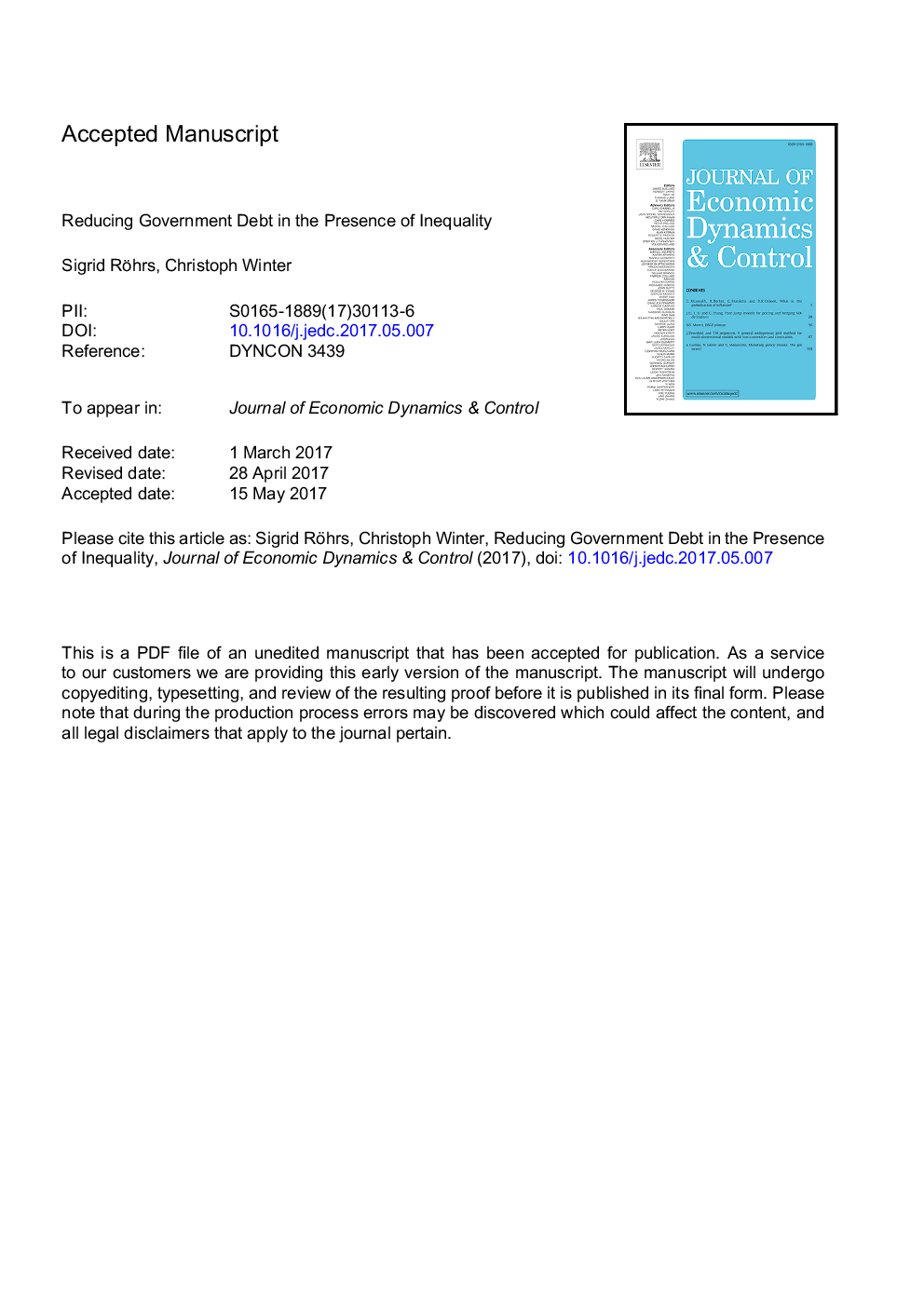| Article ID | Journal | Published Year | Pages | File Type |
|---|---|---|---|---|
| 5097971 | Journal of Economic Dynamics and Control | 2017 | 33 Pages |
Abstract
What are the welfare effects of government debt? In particular, what are the welfare consequences of government debt reductions? We answer these questions with the help of an incomplete markets economy with production. Households are subject to uninsurable income shocks. We make several contributions. First, by targeting the skewed wealth and earnings distribution of the US economy in our calibration, we identify inequality as the major driver of the welfare effects of public debt/GDP changes. Second, we show that in order to fully gauge the welfare consequences and the political feasibility of government debt changes, it is crucial to consider the transitional dynamics between stationary equilibria. Our results therefore have important implications for the design of debt reduction policies. Since the skewed wealth distribution generates a large fraction of borrowing-constrained households, a public debt reduction should be non-linear, such that the tax burden is postponed into the future.
Related Topics
Physical Sciences and Engineering
Mathematics
Control and Optimization
Authors
Sigrid Röhrs, Christoph Winter,
